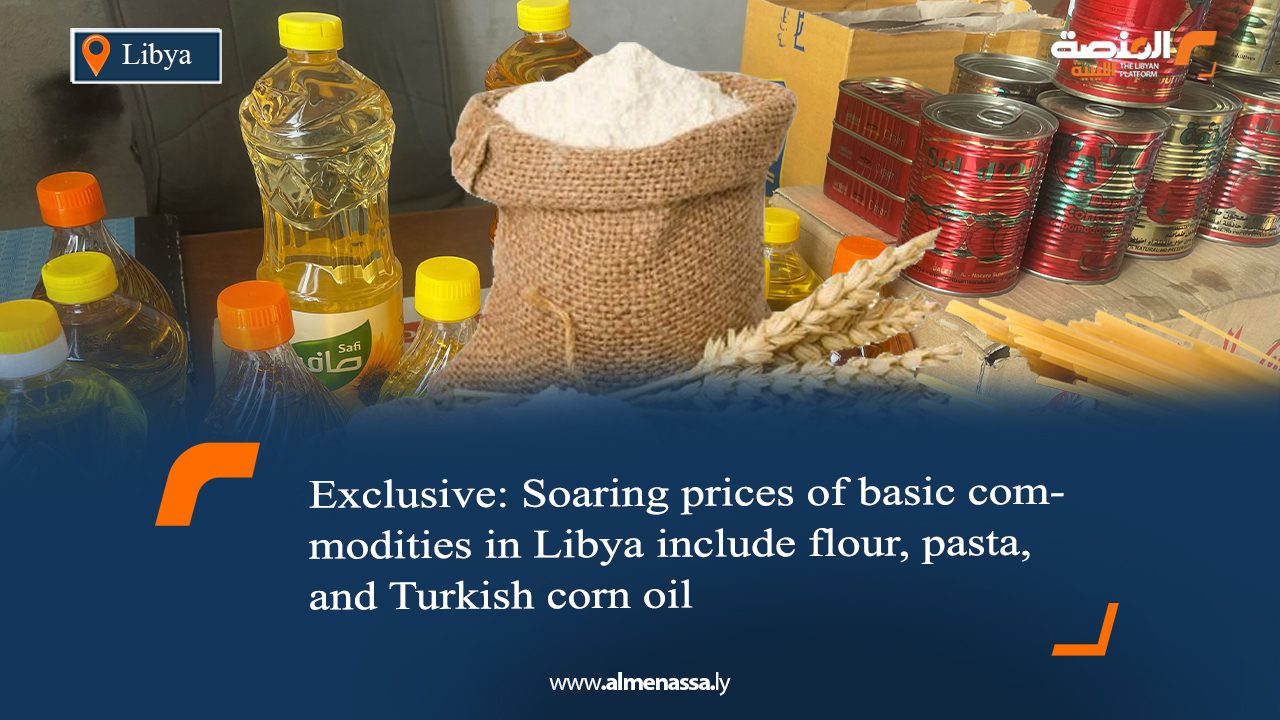An exclusive field tour conducted by Al-Manassa team in the wholesale markets of the Karimiya area, south of Tripoli, revealed increases in the prices of basic food commodities. This rise has affected limited local products due to their dependence on imported raw or basic materials, in addition to goods entirely imported from abroad. This surge in prices is largely attributed to the recent decision by the Central Bank of Libya to devalue the dinar by 13.3% while maintaining the 15% levy, setting the official exchange rate at 6.40 dinars per US dollar. In contrast, the dollar traded among merchants at 7.40 dinars per US dollar until the close of trading on Saturday, April 12, 2025.
Pasta Records a 16% Increase
During the field visit conducted by the “Al-Manassa” team today, Sunday, a rise in the price of local pasta (per carton consisting of 24 bags weighing 400 grams per bag) was observed, amounting to no less than 16%. The price per carton increased from 39 dinars to 45 dinars, with similar increases recorded across various local pasta brands.
Cooking Oils Experience a Price Jump
The wave of price increases also encompassed cooking oils of both types: corn oil and sunflower oil. Mohammed Al-Miladi, a wholesale merchant in Samba Street, explained that the price of a carton of sunflower oil (12 bottles weighing 850 ml per bottle) witnessed an increase ranging between 3 and 5 dinars, equivalent to a price hike of between 2% and 5%. As for Turkish corn oil, its price jumped to 110 dinars, registering a 16% increase.
Flour Jumps by 37.2%
The field tour by “Al-Manassa” team revealed a sharp increase in the price of a quintal of flour (100 kilograms), rising from 190 dinars to 260 dinars, marking a substantial increase of 37.2% compared to the period preceding the Central Bank of Libya’s decision to devalue the dinar.
Increase in Tomato Paste Prices
The team also noted an increase in the price of a carton of tomato paste (containing 24 cans weighing 400 grams per can), with the increase ranging between 5 and 8 dinars per carton, or approximately a 10% increase for locally branded tomato paste.
Impact of Letters of Credit Government data indicates that Libya imports approximately 85% of its various commodity needs, which compels the Central Bank of Libya to allocate significant amounts of foreign currency to meet the demands for letters of credit through which food commodities are imported. The value of letters of credit utilized during the first quarter of 2025 amounted to around 4.4 billion US dollars, while the total value during 2024 reached approximately 12.950 billion US dollars.


